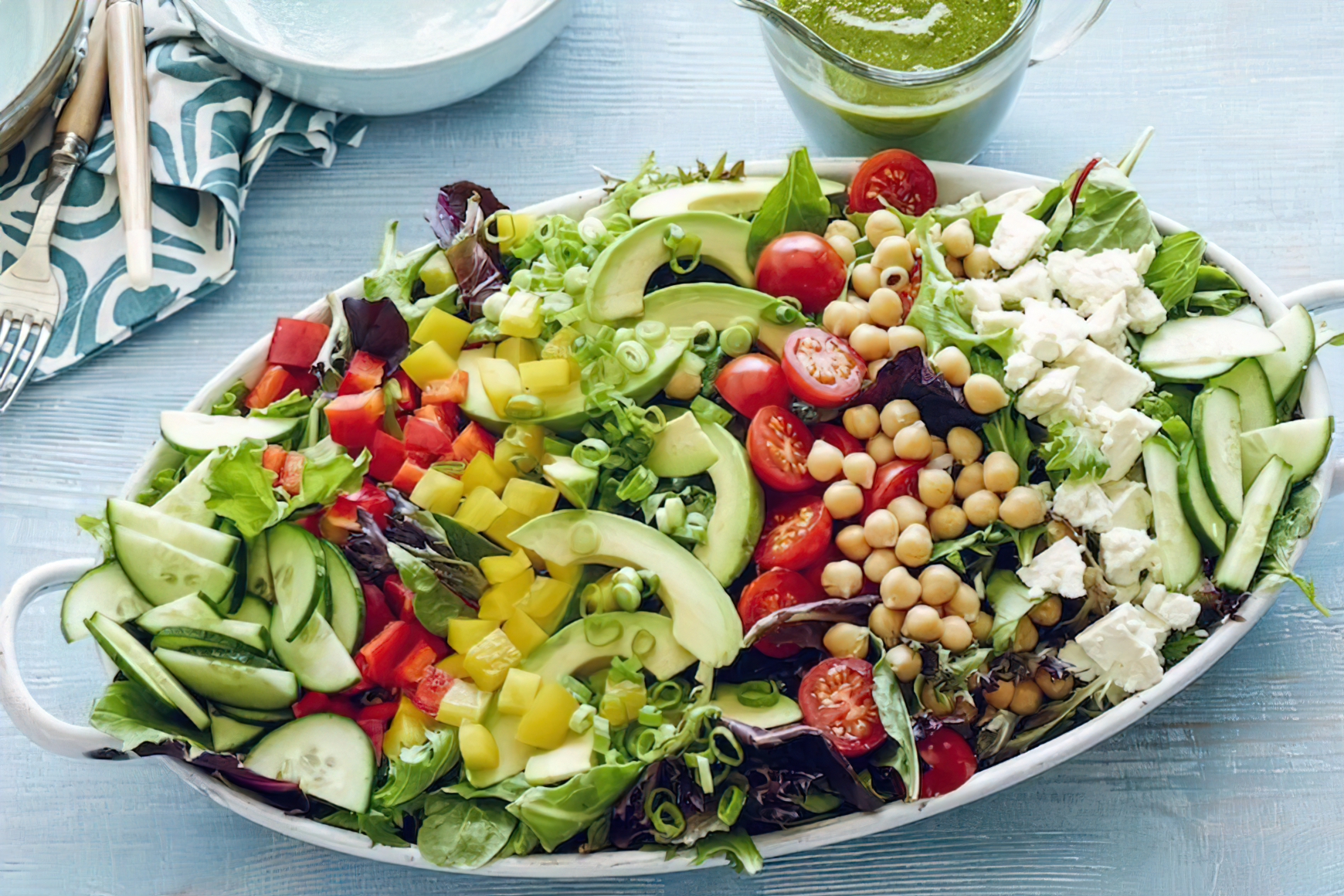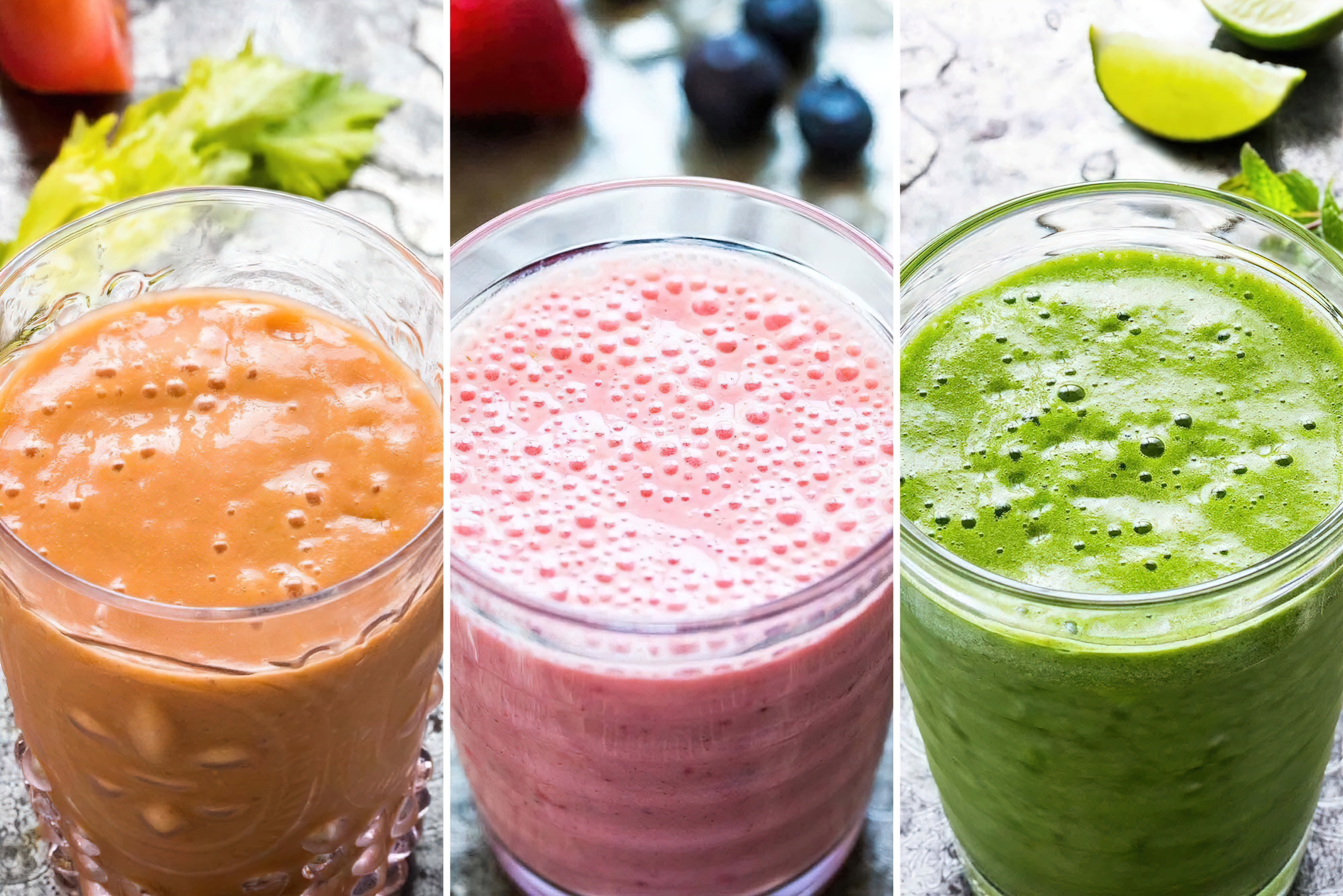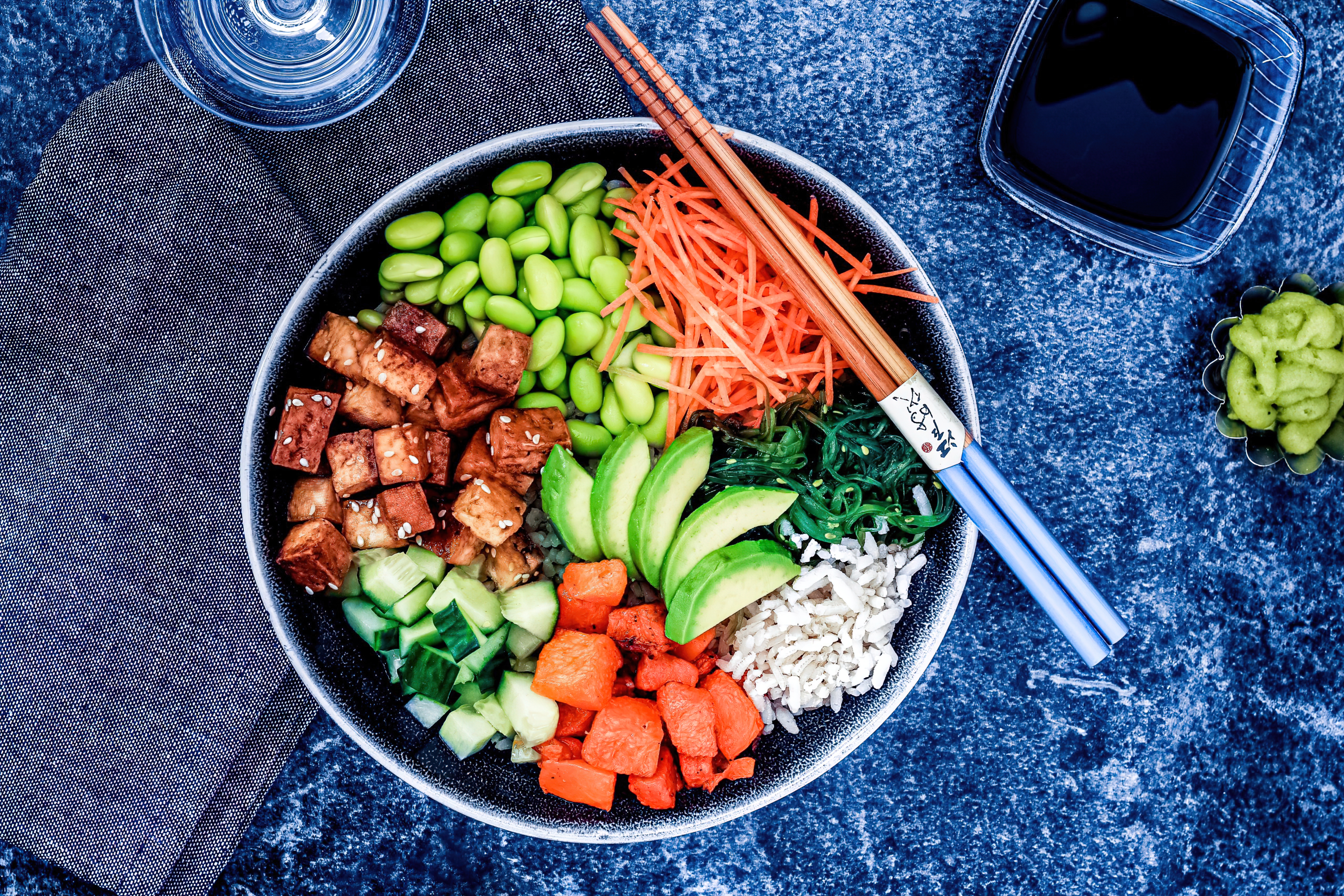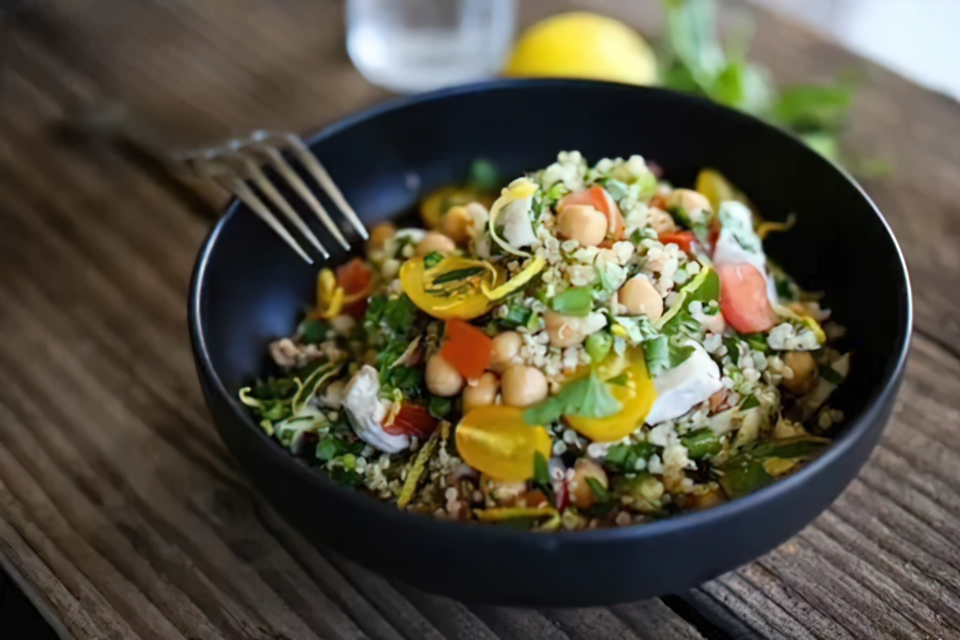Fuel Your Football Game
Whether you’re a Sunday league enthusiast or training for the Premier League, the food you eat can have a huge impact on your football performance. A balanced, nutrient-rich diet will not only fuel your body but also enhance your stamina, speed, and recovery time.
Pre-Game Power Salad
Ingredients:
- 1 cup of cooked quinoa
- 2 cups of mixed greens (spinach, kale, arugula)
- 1 cup of cherry tomatoes
- 1/2 cup of cooked chickpeas
- 1/2 avocado, sliced
- 1/4 cup of walnuts
- Olive oil, lemon, salt, and pepper to taste
Cook the quinoa and let it cool. Mix all the ingredients in a large bowl. Drizzle with olive oil, squeeze a lemon, add salt and pepper to taste. This protein-rich salad provides slow-release energy, preventing a crash during your game.
Half-Time Hydrating Smoothie
Ingredients:
- 1 banana
- 1 cup of blueberries
- 1 tablespoon of chia seeds
- 1 tablespoon of honey
- 1 cup of almond milk
Blend all the ingredients until smooth. This smoothie is packed with antioxidants, essential for recovery and preventing inflammation.
Post-Game Recovery Bowl
Ingredients:
- 1 cup of brown rice
- 1 cup of steamed broccoli
- 1 grilled chicken breast
- 1 boiled egg
- Soy sauce to taste
Cook the rice, steam the broccoli, grill the chicken, and boil the egg. Combine everything in a bowl and drizzle with soy sauce. This bowl is high in protein, aiding in muscle recovery after the game.
Chicken and Quinoa Salad
Ingredients:
- 1 cup quinoa
- 2 cups water
- 2 chicken breasts
- 1 tablespoon olive oil
- Salt and pepper to taste
- 1 cup cherry tomatoes, halved
- 1 cucumber, chopped
- 1/4 cup feta cheese, crumbled
- 2 tablespoons lemon juice
- Fresh parsley to garnish
Instructions:
- Rinse the quinoa under cold water until the water runs clear. This is to remove the natural coating of quinoa, which can make it taste bitter.
- Bring the quinoa and water to a boil in a medium saucepan. Reduce the heat to low, cover, and simmer until quinoa is tender, about 15 minutes.
- While the quinoa is cooking, heat the olive oil in a pan over medium heat. Season the chicken breasts with salt and pepper, then add them to the pan. Cook until golden brown and cooked through, about 7 minutes per side. Let the chicken rest for a few minutes, then slice it into strips.
- In a large bowl, combine the cooked quinoa, chicken, cherry tomatoes, cucumber, and feta cheese. Drizzle with lemon juice and toss everything to combine. Garnish with fresh parsley before serving.
This nutrient-packed meal is high in protein from the chicken, whole grains from the quinoa, and packed with fresh, crisp veggies. It’s an excellent choice for footballers looking for a satisfying, energy-boosting meal.
Understanding the Game’s Demands
It’s crucial to grasp how physically demanding a game of football can be. You’re not just running for 90 minutes, but also jumping, twisting, turning, and battling for the ball. This exertion requires a diet that can support such high-intensity activity. Lean proteins, complex carbohydrates, and healthy fats should be your go-to nutrients.
The Role of Hydration
Staying hydrated is equally vital. Water carries nutrients to your cells and helps regulate body temperature. Don’t wait until you’re thirsty to drink up; sip on your water bottle throughout the day and during breaks in the game.
Smart Snacking
Sometimes, a full meal might not be an option, especially if you’re juggling training with other commitments. That’s where smart snacks come in. Opt for nutrient-dense snacks like nuts, seeds, and fruit. They’re easy to carry, and you can have them anytime, anywhere.
Remember the Balance
Remember, everyone is different. What works for one player may not work for another. It’s essential to listen to your body and adapt your diet accordingly. It’s all about balance and making sure your body gets what it needs to perform at its best.
A footballer’s diet is not just about eating the right foods; it’s also about when you eat them. Incorporating these nutrient-dense meals and tips into your routine can boost your performance on the field. Keep the goal in mind and remember, you’re fueling for success!